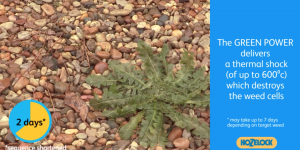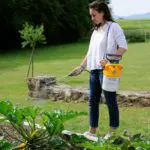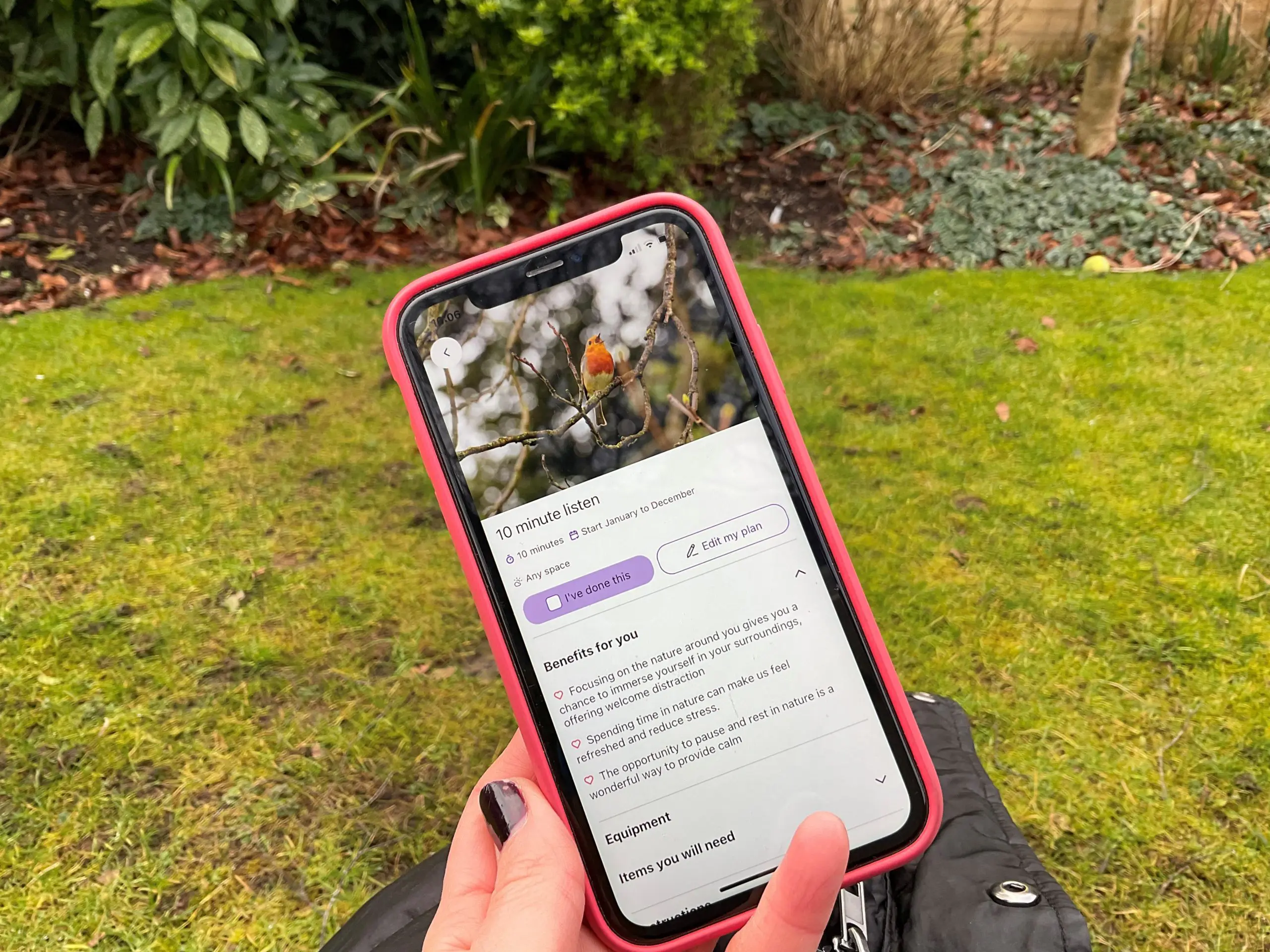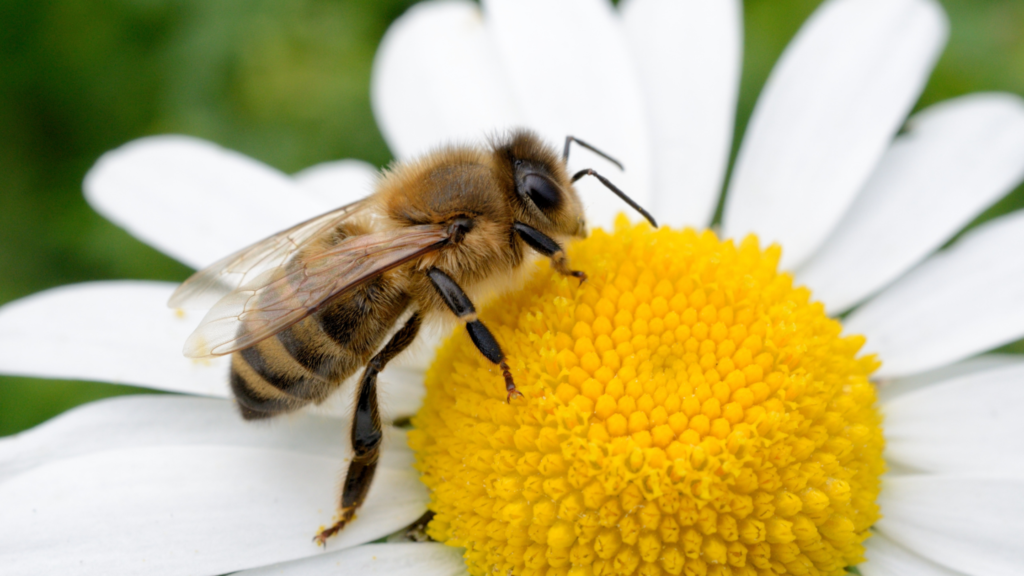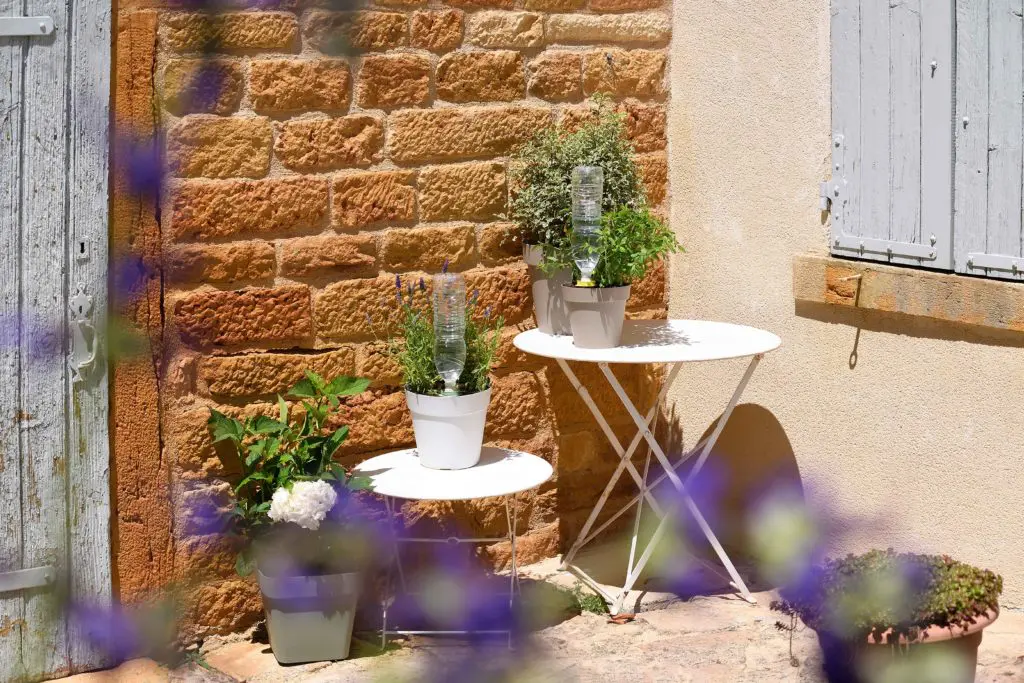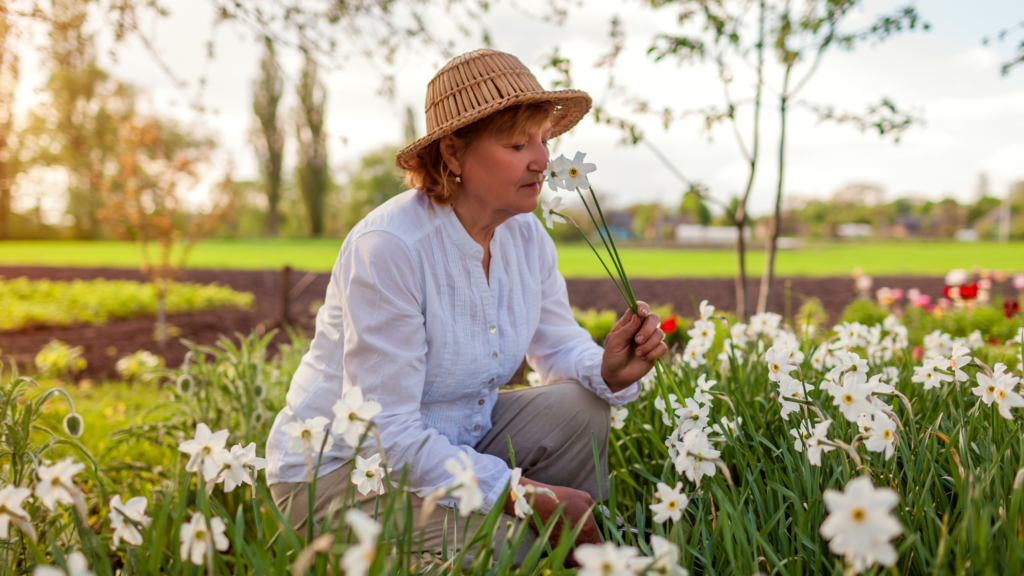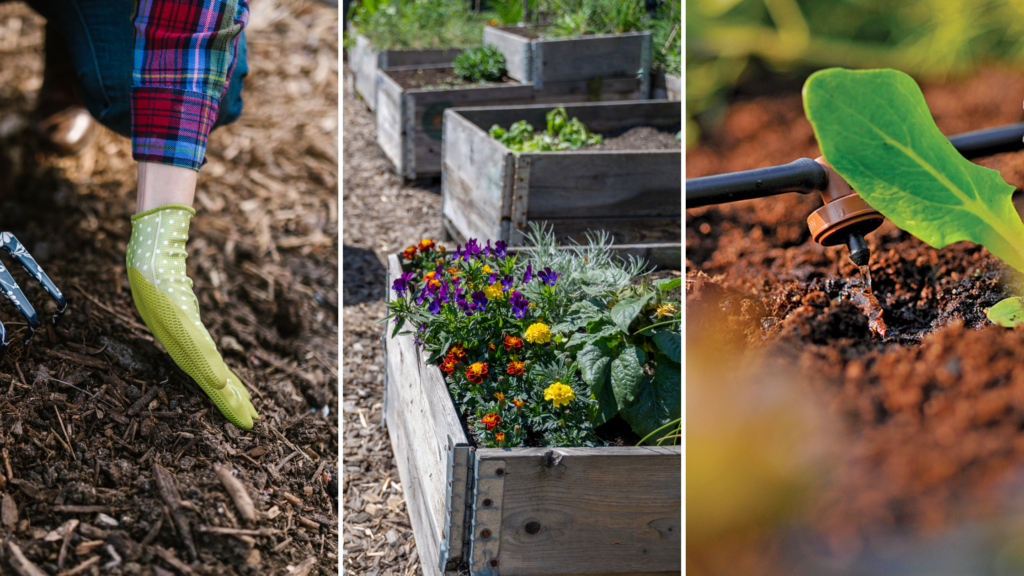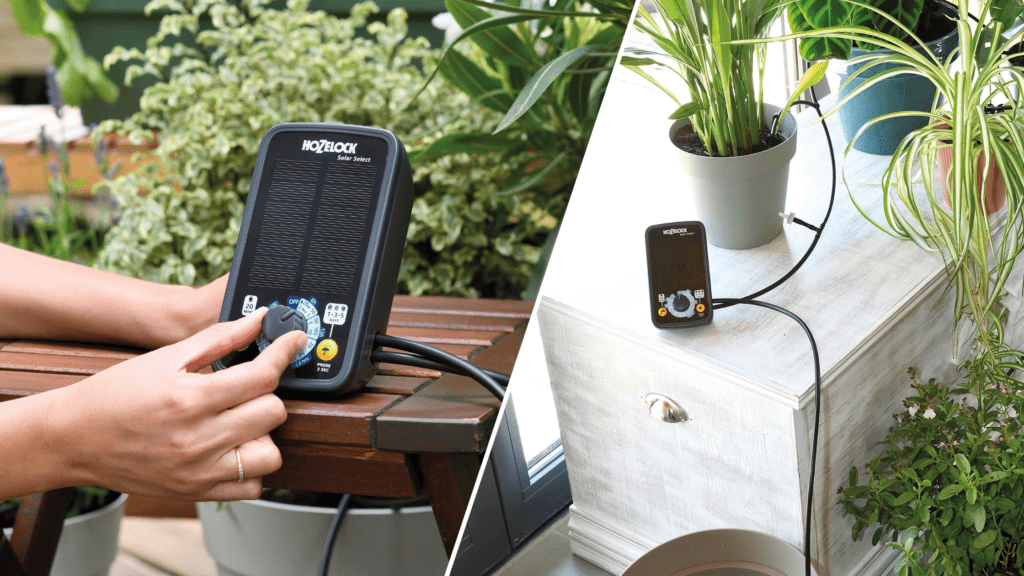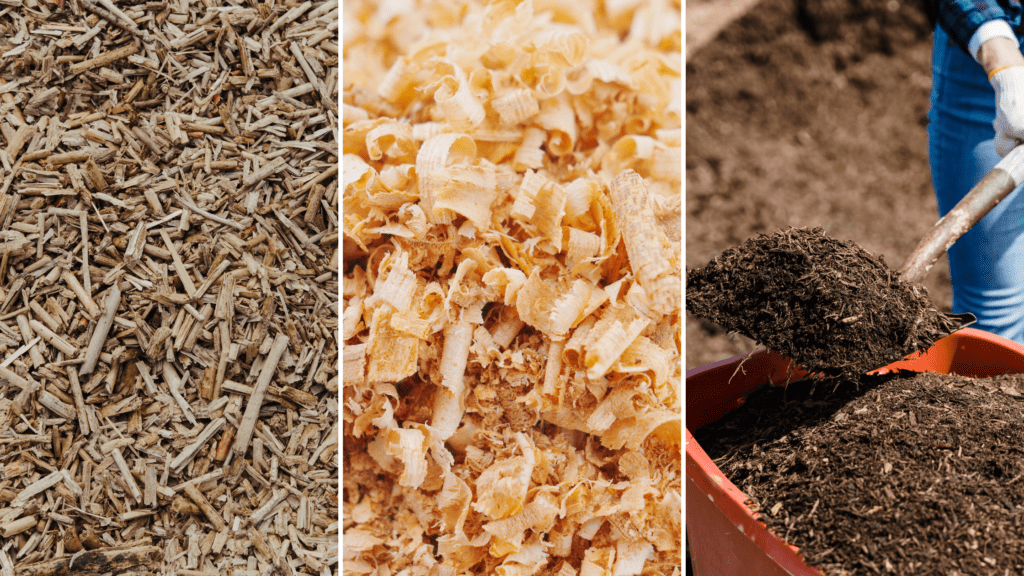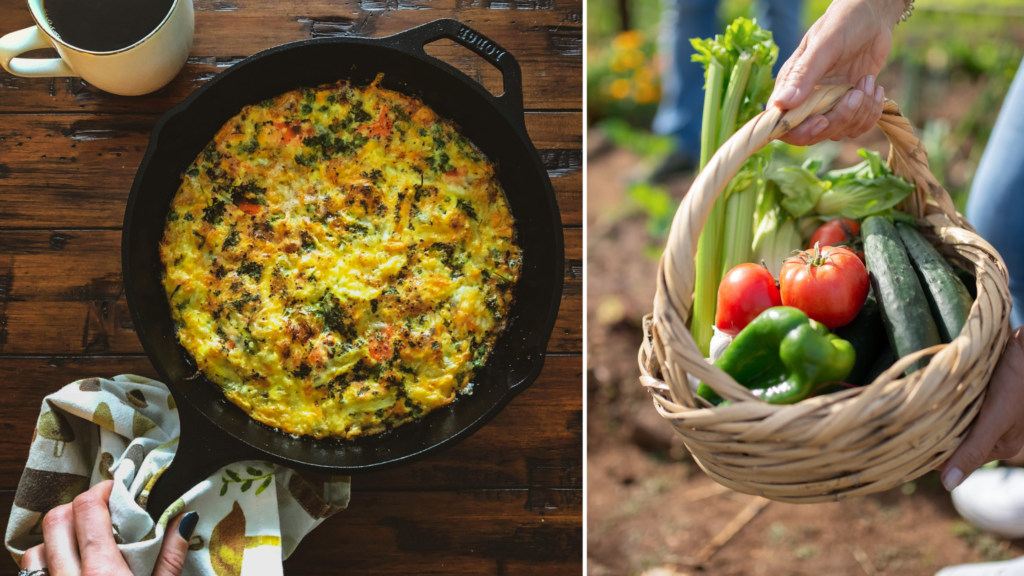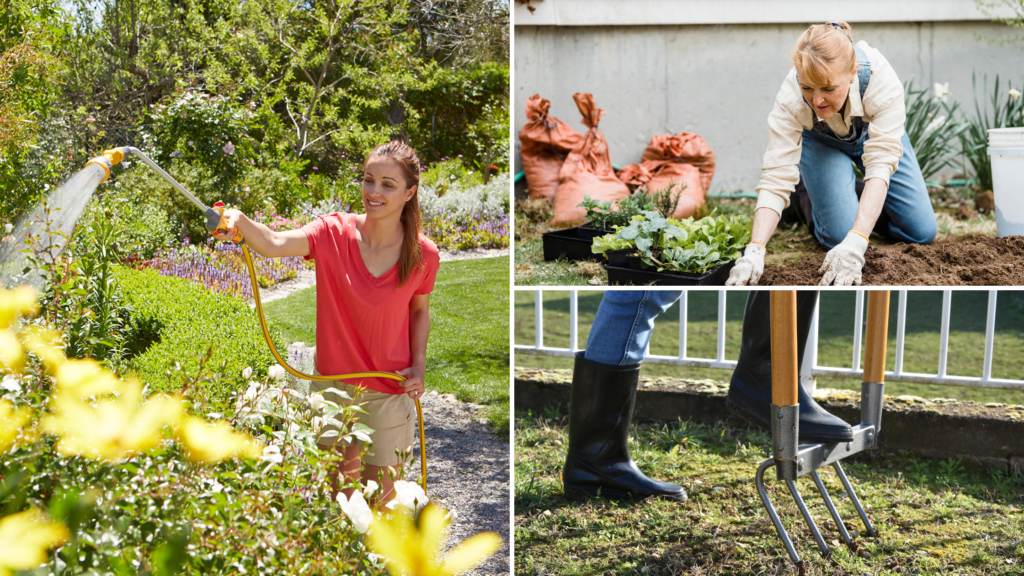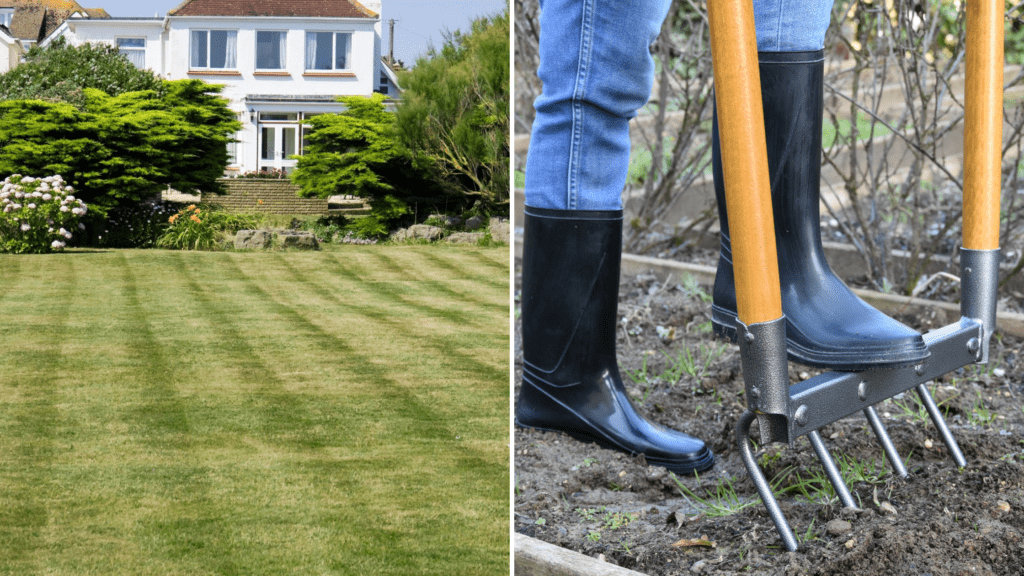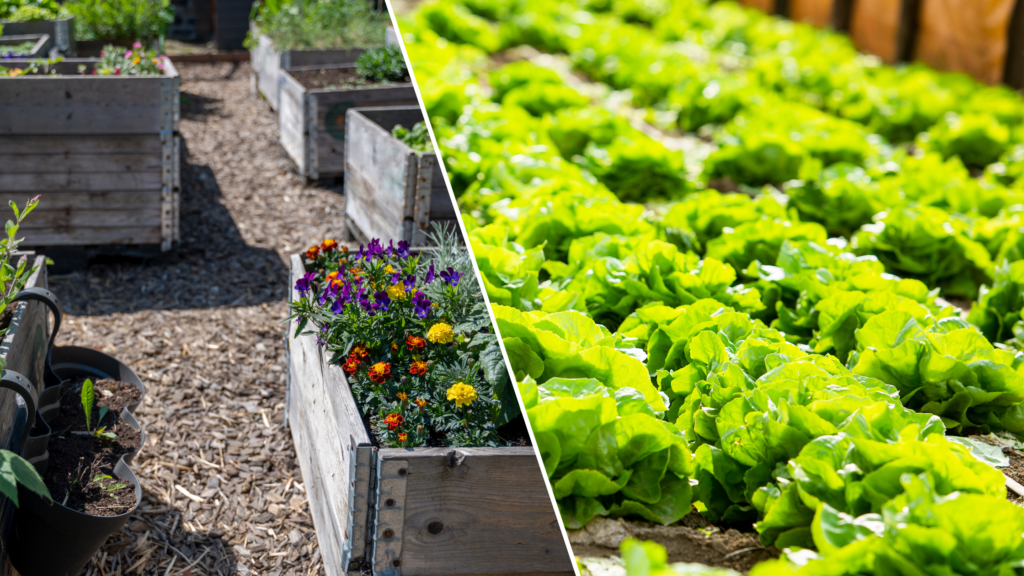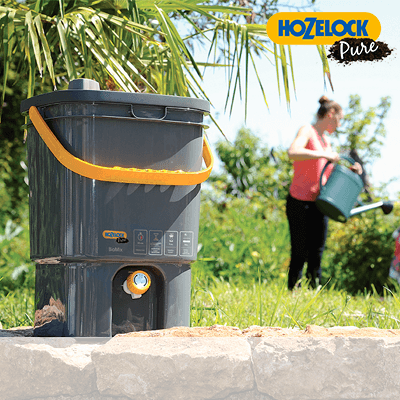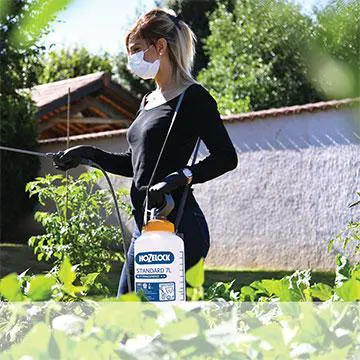Gardening and time in nature offers a multitude of benefits for our mental, physical and social wellbeing. Thrive, the gardening for health charity, explores the evidence.
Gardening is one of the nation’s favourite hobbies, a nourishing experience passed down for generations full of happy garden memories connected to helping parents or grandparents.
When we spend time in a garden or enjoying nature, we instinctively feel good. The pleasure of listening to birdsong in spring, the joy of seeing flowers bloom, or the calming effect of looking at houseplants on a shelf all have therapeutic benefits.
At Thrive, we have more than 40 years’ experience of using gardening to change lives, through an approach called Social and Therapeutic Horticulture (STH). Today, there’s a growing body of scientific research backing the positive effects of gardening which we see every day in our own Thrive gardens.

Staying Active
Gardening and nature offer many of the elements needed for a happy healthy lifestyle. The benefits come from three active processes that work together: time in nature, time being occupied and active, and time in a positive social environment.
We know being active is great for both our physical and mental health. Gardening is like a green gym, providing great physical activity, getting you moving in the fresh air with a variation of tasks. General gardening activities, such as mowing the lawn and digging, can help burn more than 300 calories an hour.
Boosting Happiness
According to mental health charity Mind, each year one in four of us will experience a mental health challenge of some kind. The good news is that gardening can really complement other treatments and help support mental wellbeing, reducing stress and anxiety and providing a sense of purpose and achievement.
In fact, 85% of adults said gardens and green spaces boost their mood according to a 2024 survey from the Horticultural Trade Association.
Mental ill health has been shown to be prevented through green social prescribing projects (such as gardening). After more than 8,000 people with mental health needs were supported to access nature-based activities, a report by the Department for Environment, Food & Rural Affairs (Defra) showed significant improvements in wellbeing, including increased happiness, life satisfaction and reduction in anxiety.
Gardening also gets us into nature, and we know from all the evidence out there that being in nature reduces our stress, improves our attention and boosts our mood.
How to Gain the Wellbeing Benefits of Gardening
The positive effects of gardening can be felt in a short time. Research has shown that green exercise, such as gardening, can lead to an increase in self-esteem and mood boost after just 5 minutes. Even small activities can make an impact. For example, counting butterflies for 15 minutes has been shown to help reduce anxiety by 10%.
It doesn’t matter what sort of garden space you have either. You can grow plenty of plants on a balcony, or herbs on an indoor windowsill, and still enjoy the benefits of nurturing and appreciating nature.

Creating Connections
Some people love peacefully gardening alone, taking a break from the busy pace of modern life through quietly watering, deadheading and weeding.
Gardening is also a great activity to enjoy as a community, helping to reduce feelings of loneliness and isolation. The NHS created the Better Health: Every Mind Matters campaign that recommend doing things you enjoy, like spending time outdoors in a green space, to improve wellbeing.
We see the social benefits of gardening firsthand at Thrive when we run our programmes. 86% of people on one of our programmes felt less isolated and socialised more as a result.
There are plenty of ways to connect through gardening. This could be by giving and sharing advice with family and friends, or by swapping plants and seeds. There are also networks of community gardens and allotments nationwide, plus groups like Incredible Edible and Men’s Sheds Association.
If you have any spare time, volunteering can be a wonderful way to give back while connecting. We have an incredible team of volunteers at Thrive and know there are STH projects nationwide seeking help.
If you would like some extra motivation and guidance, try our new app, Cultivating Wellbeing. It is full of tailored, seasonal activity ideas and can help you create a plan and offer gentle motivation to keep going.
You don’t have to think about the health benefits of gardening to get them. Just doing a little bit of gardening every few days can have a positive impact.
Additionally, visit Hozelock’s Wellbeing Hub for a feel-good space to support your mind, body, and mood — all through the power of gardening and nature.







